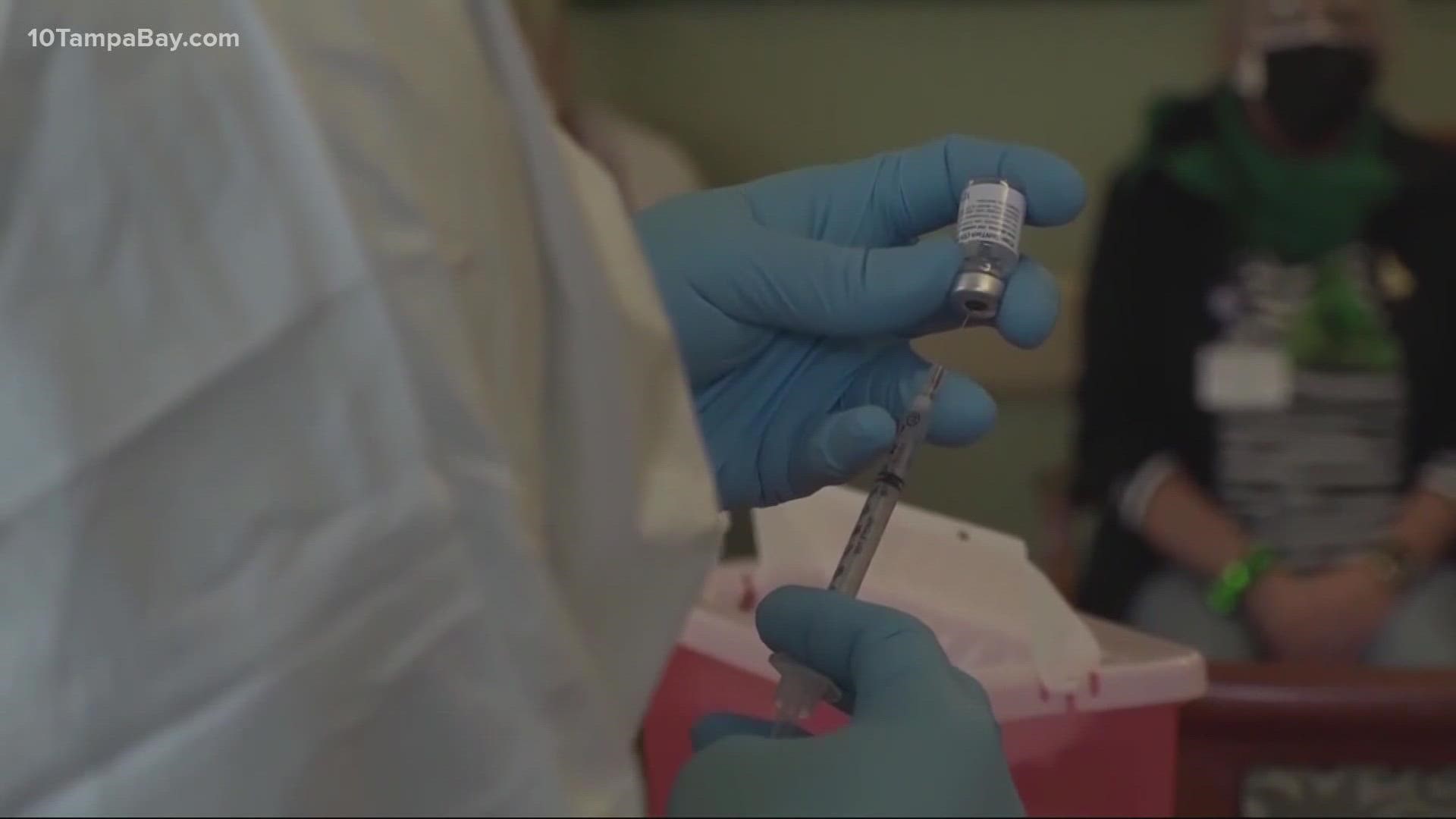TAMPA, Fla — As more people test positive for COVID-19, the number of people needing help from our hospitals is rising.
According to the Florida Hospital Association, more than 95,000 people are receiving care right now. That's an increase of more than 800 patients in just 24 hours. Doctors say that number has risen over the last few weeks.
"We're seeing around 160 patients in the emergency department every day," Dr. Hal Escowitz, the Chief Quality Officer at Lakeland Regional Health, said.
Hospitals in Tampa Bay are seeing the number of patients through their doors surge, but not everyone needs to stay long.
"The number of those patients who are hospitalized or in ICU settings is much lower than we've seen in prior parts of the pandemic," Tampa General Hospital's Emergency Room Director, Dr. Jason Wilson, said.
The way they treat the virus over the last few years has changed despite the climb of case numbers being steeper than that of the delta variant. Drugs to treat or prevent the virus from spreading are helping doctors.
"In general, the patient populations we're seeing are a little less critically ill for the most part," Escowitz said. "The majority of them do not require hospitalization."
On Monday, Tampa General got the news they'll receive Evusheld, a new drug that will help prevent those that are immunocompromised from getting COVID-19 and boost their immunity.
"They remained at risk for developing COVID and particularly now omicron which is the current variant we're seeing," Dr. Peggy Duggan with TGH said.
The hospital is one of nearly a dozen locations in the state to get the drug first. With 3,100 doses coming to the state supply will be limited.
"There's an expectation that there will be supply available, but we have to think about who our highest risk patients first to utilize this," Duggan said. "It's one more thing we can do to protect our patients and to normalize our lives."

